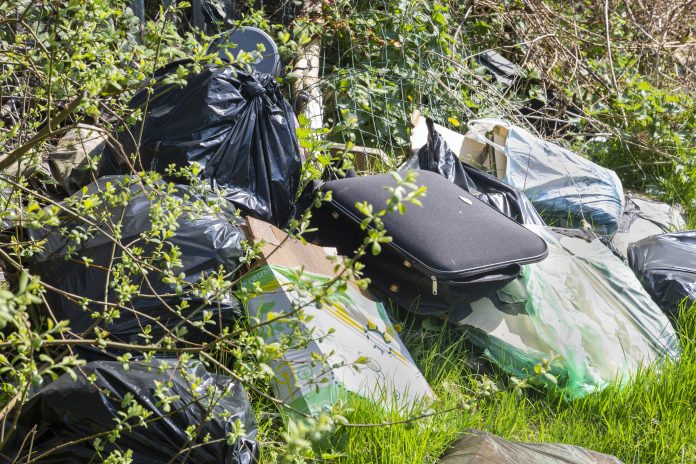Aaron Georgiou, CEO and Founder, Litta, discusses how businesses have been affected by recent fly-tipping activities and what can be done to ensure the efficient and safe disposal of commercial waste
After months in lockdown, it looks as though things are slowly returning back to normal in the UK. The number of COVID-19 cases is dropping and the government has made the decision to gradually relax social distancing measures.
Most recently, non-essential retail outlets and high street shops have been allowed to re-open. Meanwhile, organisations of all shapes and sizes are also planning for a phased return back to the office in the coming months.
While this is a positive step for the economy and something that will be gladly welcomed by a great many people, we must also realise that the transition out of lockdown will naturally pose some challenges. Notably, all workplaces must ensure social distancing between employees can be maintained. For some, this could mean heavy renovation works or the refitting of existing office spaces.
As a result, there is an underlying risk that the UK could witness a further increase in the number of fly-tipping cases being reported. Here at Litta, we have witnessed first-hand the spike in fly-tipping that has come about in the midst of the COVID-19 crisis.
A long-term issue that’s getting worse
Let’s look at some recent figures to put this issue into perspective. According to The Countryside Alliance, since the beginning of lockdown measures, the number of fly-tipping cases has increased in some parts of the UK by as much as 300%.
The spike in the illegal dumping of waste material can be attributed to a number of factors. The first has to do with the number of new waste households have sought to get rid of. Online shopping, home DIY work and the clearing out of unwanted household items have increased as a result of people being confined to their homes.
A survey of waste collection authorities in England by the Association of Environment, Economy, Planning and Transport revealed that residual waste has risen by 81%. What’s more, three in four councils reported a 76% rise in the amount of dry recycling household waste, while there was a 68% increase in collected garden waste tonnage.
The second reason stems from the temporary closure of waste collection centres. At the peak of the lockdown, a significant number of waste removal companies, charities and councils temporarily froze their waste clearance services. This caused some people to fly-tip or engage with illegal waste removal companies. This is not a new trend – since 2012, the rise in illegal waste removal services has cost the local authorities over £60 million in clean-up costs.
Commercial fly-tipping will be the next challenge
The easing in lockdown measures has resulted in the reopening of recycling and waste management centres. Local councils have also recommenced their household collection services. The question is whether the return of these services will result in the number of fly-tipping cases dropping as things return back to normal.
While I am hopeful this will be the case, the illegal dumping of household waste is only part of the problem; my bigger concern is the potential increase in commercial fly-tipping. As stated above, once businesses return to their offices, there will be significant demand for waste clearance services.
New equipment will be bought and installed to protect staff. Some desks, chairs and storage units will be removed to enable social distancing in the workplace. And some organisations will generally seize the opportunity of having an empty office to undertake broader renovation and redecorating works.
Then comes another issue: fly-tipping on commercial sites. Industrial parks, manufacturing sites and office areas have been largely deserted since late March – in this time, some consumers and illegal waste removal companies have taken to dumping rubbish in such places.
At the beginning of June, for example, Litta cleared a 75-tonne fly-tip on a commercial estate in Uxbridge, London. This was the heaviest volume of waste we have cleared in our three-year history, but such cases are becoming more common. There are understandable concerns, therefore, that this could be the beginning of a long-term trend.
All this could mean a significant increase in commercial waste needing to be disposed of over the coming months as organisations return to their offices. And while waste disposal centres are reopening, we have to be realistic about their capacities, not to mention how to actually get the waste there.
Using technology to stay on top of fly-tipping
Action needs to be taken to prevent a fly-tipping crisis. That’s why councils need to start working more closely with waste removal companies to ensure the rubbish will not be illegally dumped on the streets. And to that end, technology has a key role to play.
We recently launched a fly-tipping alert system to help councils. Through an online platform, anyone in the UK can report a fly-tipping site using their GPS. They can add pictures and further information about the incident. And this information is then transmitted to the local council for clearance.
These types of solutions will go a long way towards addressing fly-tipping in the UK. They bring consumers, businesses and councils together – with technology the enabler, each can do their part to identify and resolve the problem.











